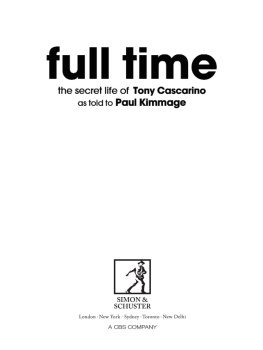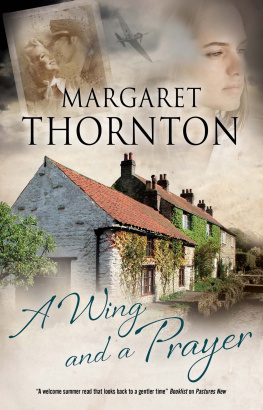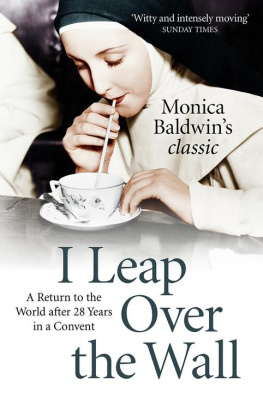Praise for Full Time
I can only describe it as the best sports book Ive read and among the most courageous ever written
Tom Humphries, Irish Times
... but why did Tony Cascarino want to share all this with us? We know now, and it was a privilege to have been introduced. Far more than the goals, this is Tony Cascarinos legacy to the game
David Walsh, Sunday Times
A remarkable tale... makes the most fascinating reading
Daily Mail
There has been an unusually good batch of football autobiographies this season... this, coming from the most unlikely source of all, is by far the best. Fantastic
Independent
If you only buy one football book this year make sure that it is the truly extraordinary Full Time: The Secret Life of Tony Cascarino
Richard Whitehead, The Times
Its a lot more intersting than David Beckhams
Guardian
The finest new sporting title the most fun, the most perceptive and maybe even the best written. Its difficult to tell whether the magic of Full Time is the result of Cascarinos honesty or Paul Kimmages clever prose, or both, but it has that elusive quality that publishers long for: a charm that will appeal even to those who are not passionate about the game
Independent on Sunday
Also by Paul Kimmage
Rough Ride
Engage
To Michael and Teddy and Maeva. See you soon. And for Mark ONeill, fighting the bravest fight.
First published in Great Britain and Ireland by
Simon & Schuster UK Ltd/Townhouse, 2000
This paperback edition published by Simon & Schuster UK Ltd, 2013
A CBS COMPANY
Copyright 2000 by Paul Kimmage
This book is copyright under the Berne Convention.
No reproduction without permission.
All rights reserved.
The right of Paul Kimmage to be identified as the author of this work has been asserted by him in accordance with sections 77 and 78 of the Copyright, Designs and Patents Act, 1988.
Simon & Schuster UK Ltd
1st Floor
222 Grays Inn Road
London WC1X 8HB
www.simonandschuster.co.uk
Simon & Schuster Australia, Sydney
Simon & Schuster India, New Delhi
Every reasonable effort has been made to contact copyright holders of material reproduced in this book. If any have inadvertently been overlooked, the publishers would be glad to hear from them and make good in future editions any errors or omissions brought to their attention.
A CIP catalogue record for this book is available from the British Library
Paperback ISBN: 978-1-47111-060-3
Ebook ISBN: 978-1-47111-062-7
Printed and bound by CPI Group (UK) Ltd, Croydon, CR0 4YY
Chapter One
Nancy in the Morning
When youre young, you always feel that life hasnt yet begun that life is always scheduled to begin next week, next month, next year, after the holidays whenever. But then suddenly youre old and the scheduled life didnt arrive. You find yourself asking Well then, exactly what was it I was having that interlude the scrambly madness all that time I had before?
Douglas Coupland, Life After God
I open my eyes to the sound of my hometown, Nancy, in the morning: the 7.43 a.m. for Paris pulling out slowly from the station; the hum of exhaust pipes on the avenue de la Garenne; an ambulance klaxoning moronically in the distance; heavy drops of rain rapping the bedroom window and beyond the white net curtain, the first sight of Nancy, an eternal grey sky, always the same.
Virginia is sleeping. I reach out and nudge her gently and watch her blink and stretch and slowly stir to life. No words are exchanged between us as she pulls on her dressing gown and trudges towards the door. I lie with my thoughts and listen to the sound of Maeva being woken and coaxed into the bathroom: Allez, Maeva, cest lheure, ma cherie. I pull back the sheets and swivel my legs on to the floor. My knee, as usual, has seized during the night. I run my fingers across the joint and feel the bone and cartilage grinding like a rusty old gate. The first step of the day is always the most painful. First, I lift my heel off the floor and flex my leg gently. Then, placing my hands on the side of the bed for the launch, I push forward, taking the weight on my left leg and hold the post of the bed for support. By the time I have limped from the wardrobe to the bathroom to the kitchen, I am almost walking normally. Virginia hands me a cup of tea. Maeva has breakfasted and is ready for school.
My name is Tony Cascarino and I am thirty-seven years old. I live with Maeva Cascarino and Virginia Masson on the third floor of an apartment block, a short walk from Nancy train station at 6 avenue de la Garenne. Madame Ginet, a mild-mannered teacher who sometimes teaches me French, lives in the apartment above. Monsieur Madaous, a bad-tempered sales rep who almost always acts like a prick (whenever Maeva is loud or I absentmindedly obstruct his parking space), lives in the apartment below. It is not, by any means, an exclusive development. We buy our groceries from the Codec store around the corner, drop our rubbish on the ground floor in a bin behind the lift and collect our post from wooden boxes bearing our names in the entrance hall. Most of the tenants are office workers, secretaries or tradesmen ordinary people living ordinary lives... well, maybe mine is a little different.
I play football with Nancy Football Club or LAssociation Sportif Nancy-Lorraine (ASNL), as it is more properly known. I have been a professional footballer since 1982, when I walked off a building site in London one afternoon and signed for a third-division team called Gillingham. Before working on the building site, I spent two years cutting and styling womens hair. Professional football is a lot more fun than building or hairdressing. It also pays better and carries a lot more perks: we travel first-class, stay in the best hotels, eat the finest food, wear designer clothes, drive the fastest cars and never have to queue for surgeons, doctors or dentists. The game is good to us. The game is everything you dream it is: we are worshipped like pop stars, pampered and spoiled. But after nineteen years, it begins to wear you down. Of late the sheer boredom of playing and training has been killing me. Sometimes, on the night before a game, I lie on the five-star bed in the five-star hotel and gaze at the five-star ceiling and it feels like a prison cell. But I still get anxious when the manager names the team. I still get excited when Saturday comes.
My daughter, Maeva, is five years old. When she throws her arms around me and calls me Papa, it is easily the nicest thing anyone has ever said to me. She was born in Nice in August 1995 at a time when I was married to another woman, living in another place and leading a deceitful double life. A day old when I sneaked away and saw her for the first time, she was aware of me for the first year of her life as the father who slept with her mother but never stayed the night.
The Lcole Maternelle de Notre-Dame is a ten-minute drive from the apartment. We take the lift to the ground floor and skip quickly through the rain to the car, where our warm breath soon mists the windscreen.
On peut rien voir, Maeva protests, as we join the queue on avenue de la Garenne.
I know, Mimi, I reply. Ive switched on the fan to clear it.
a marche pas, papa.
It will clear in a moment, Mimi. Sit back and put on your seat belt.
Daccord.
Daccord is French for OK. Maeva knows daccord is French for OK and knows the English for pretty much everything she says but refuses to converse with me in anything but French. Still, we understand each other perfectly and communicate just fine except on the subject of the school canteen. Maeva doesnt like the school canteen; spoiled rotten by her adoring (but somewhat bourgeois) great-grandmother, she cant understand why they never serve smoked salmon or change the plates after each course and insists we take her home for lunch. This mornings argument was pretty typical...
Next page










